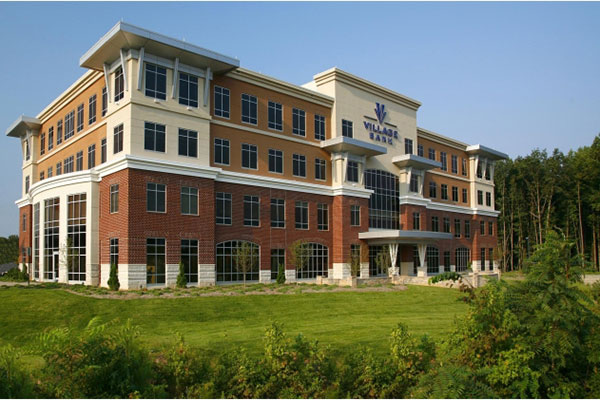An unknown investor last week was able to buy a claim in a local bank on the cheap.
The TARP shares of Midlothian-based Village Bank were sold at a steep discount during a three-day auction held by the U.S. Treasury.
The buyer, whose identity is for now unknown, bought Village’s 14,738 TARP shares from the U.S. Treasury at $348.88 per share for a total of $5.67 million. The government paid $14.7 million in TARP capital in May 2009 in exchange for the shares of Village preferred stock.
The auction makes Village the third local bank to exit the TARP program through such an auction. First Capital Bank’s shares were sold at a slight discount when the Treasury put them up for auction in 2012. In October, EVB’s TARP shares were purchased at a premium by an unknown investor for $26.5 million.
Essex Bank is the only local institution that remains in the once controversial program, and it has begun to buy its way out. In July, the bank spent $4.5 million to pay back about a quarter of the $17.6 million it received through TARP.
Eight local banks participated in TARP, through which the U.S. government pumped $191 million dollars to help prop up the area’s banks during the recession. Treasury in 2012 began auctioning the shares of certain banks that had yet to buy their way out.
Village and any other bank whose shares are sold through auction are still on the hook to pay dividends to the new shareholders. The dividend rate is 5 percent through the first five years. The rate jumps to 9 percent thereafter.
Should Village strengthen to a point that it’s able and allowed, it could buy the preferred shares from the new shareholder to stop having to pay dividends.
However, the $459 million bank remains under a written agreement with regulators that would require state and federal regulatory approval should the bank want to buy out the new shareholder.
Village reported a loss of $488,000 for the third quarter. That includes the deferred dividends it must pay on its TARP shares.
The bank has a leadership change in the works, with longtime chief executive Tom Winfree stepping aside at year’s end. He’ll be replaced by the bank’s current president, Bill Foster.
An unknown investor last week was able to buy a claim in a local bank on the cheap.
The TARP shares of Midlothian-based Village Bank were sold at a steep discount during a three-day auction held by the U.S. Treasury.
The buyer, whose identity is for now unknown, bought Village’s 14,738 TARP shares from the U.S. Treasury at $348.88 per share for a total of $5.67 million. The government paid $14.7 million in TARP capital in May 2009 in exchange for the shares of Village preferred stock.
The auction makes Village the third local bank to exit the TARP program through such an auction. First Capital Bank’s shares were sold at a slight discount when the Treasury put them up for auction in 2012. In October, EVB’s TARP shares were purchased at a premium by an unknown investor for $26.5 million.
Essex Bank is the only local institution that remains in the once controversial program, and it has begun to buy its way out. In July, the bank spent $4.5 million to pay back about a quarter of the $17.6 million it received through TARP.
Eight local banks participated in TARP, through which the U.S. government pumped $191 million dollars to help prop up the area’s banks during the recession. Treasury in 2012 began auctioning the shares of certain banks that had yet to buy their way out.
Village and any other bank whose shares are sold through auction are still on the hook to pay dividends to the new shareholders. The dividend rate is 5 percent through the first five years. The rate jumps to 9 percent thereafter.
Should Village strengthen to a point that it’s able and allowed, it could buy the preferred shares from the new shareholder to stop having to pay dividends.
However, the $459 million bank remains under a written agreement with regulators that would require state and federal regulatory approval should the bank want to buy out the new shareholder.
Village reported a loss of $488,000 for the third quarter. That includes the deferred dividends it must pay on its TARP shares.
The bank has a leadership change in the works, with longtime chief executive Tom Winfree stepping aside at year’s end. He’ll be replaced by the bank’s current president, Bill Foster.

Why did the Federal Reserve / US Treasury sell these shares at a discount? Was that really necessary? Isn’t a 5% return on an asset that the FDIC ultimately backstops anyway a good investment?
Further – I think that any purchaser of these Tarp shares should be public information. These are public assets being sold at a discount.